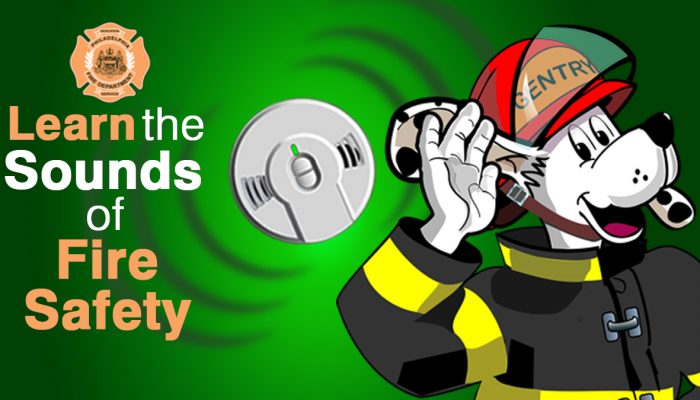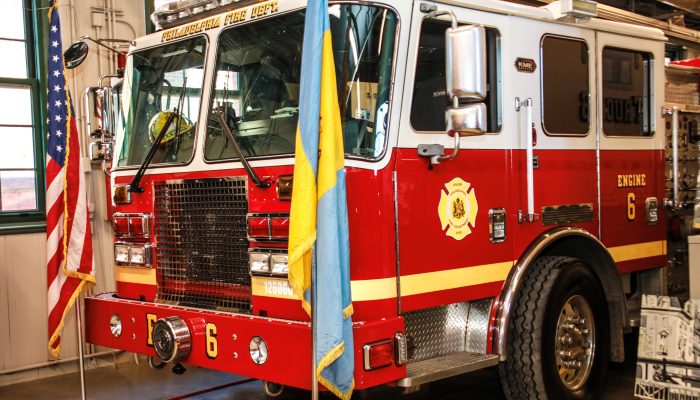Smoke alarms can save lives … but only if you heed their warnings!
That’s why we urge you to “Learn the Sounds of Fire Safety” during Fire Prevention Week, which runs from Oct. 3-9, 2021.
Whenever an alarm makes noise – either a beeping sound or a chirping sound – that means it’s time to take action:
Hear a beep? Get on your feet!
Hear a chirp? Make a change!
To be specific:
- A continued set of three loud beeps—BEEP! BEEP! BEEP! —means smoke or fire. Get out, call 9-1-1, and stay out!
- A single “chirp” every 30 or 60 seconds means the battery is low and must be changed.
- All smoke alarms must be replaced after 10 years.
- Chirping that continues after the battery has been replaced means the alarm is at the end of its life; the alarm must be replaced.
Remember: If there’s a fire in your home, you might have as little as two minutes to escape. It’s important that you act as soon as you hear the smoke alarm.
If someone in your household is deaf or hard-of-hearing, there are adaptive units to alert them when the smoke alarm is sounding. Some of these devices have flashing strobe lights; others use pillow- or bed-shakers to wake up sleeping occupants.
Philadelphia residents should contact 311 to request free smoke alarms or adaptive alarms for the deaf and hard-of-hearing. The PFD will come and install the alarms.
If your home has a carbon monoxide detector, a continuous set of four loud beeps — BEEP! BEEP! BEEP! BEEP! — means there’s carbon monoxide in your home. Go outside, call 9-1-1 and stay out! Carbon monoxide is a colorless, odorless gas that can cause you to lose consciousness before you even understand what is happening.
Fire Prevention Week is tied to the anniversary of the Great Chicago Fire, which broke out on Oct. 8, 1871, killing about 300 people, leaving 100,000 homeless, and destroying more than 17,000 buildings.




